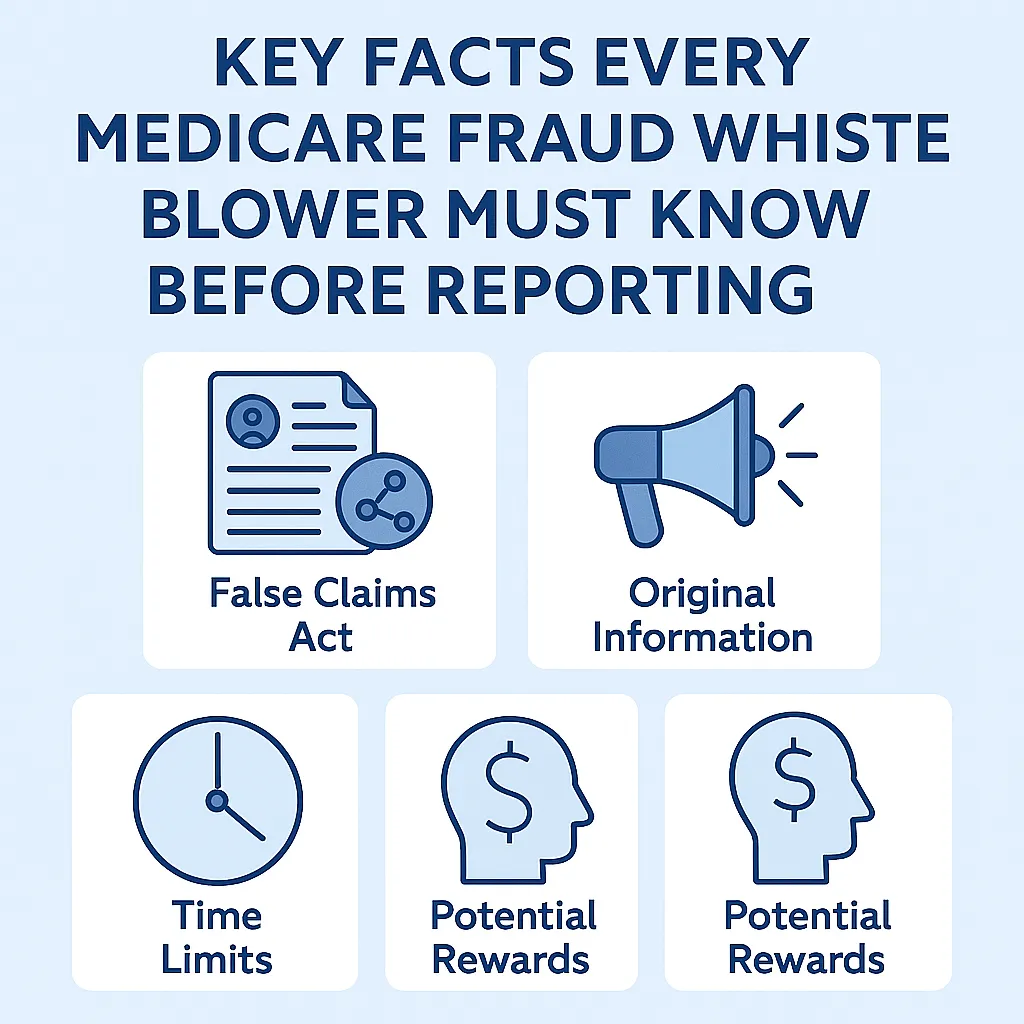Key Facts Every Medicare Fraud Whistleblower Must Know Before Reporting

Medicare fraud is a critical issue that costs taxpayers billions of dollars each year. Whistleblowers play an essential role in exposing fraudulent activities and protecting the integrity of the Medicare system. Hence, understanding the key facts about reporting Medicare fraud is crucial for anyone considering bringing such issues to light.
When the question ‘What do I need to know about being a Medicare fraud whistleblower?’ pops up in your head, know that before reporting, it is vital to comprehend the legal implications and protections available to whistleblowers. Medicare fraud encompasses multiple illegal activities, from overbilling for services to providing unnecessary treatments. So, knowing how to tackle the process can ensure that the whistleblower’s actions are impactful and legally protected.
Legal Protections for Whistleblowers
Whistleblowers are protected by federal and state laws that shield them from retaliation. The False Claims Act (FCA) is particularly important because it offers financial rewards to those who expose Medicare fraud. These legal provisions ensure that whistleblowers can report fraud without fear of losing their jobs or facing other punitive measures.
It’s important to note that whistleblowers are entitled to a percentage of any funds recovered through their claims. This incentive serves to encourage individuals to report wrongdoing, which provides both financial rewards and legal security. Whistleblowers can be assured that their actions are supported by the law, as long as they meet specific criteria.
The Types of Medicare Fraud to Report
Medicare fraud takes many forms, and whistleblowers should be aware of the various fraudulent activities that may occur. These include:
- False Billing: Submitting claims for services that were not provided or were unnecessary.
- Upcoding: Charging for a more expensive service than the one actually provided.
- Kickbacks: Offering or accepting payments in exchange for patient referrals.
Importance of Detailed Evidence
Collecting strong, detailed evidence is critical for a successful Medicare fraud case. Whistleblowers need to document every suspicious activity they observe, from billing discrepancies to conversations with colleagues. This evidence may include emails, invoices, or recordings that directly relate to the fraudulent activities. The more thorough and clear the documentation, the stronger the case becomes.
Time Sensitivity in Reporting
Time is extremely crucial when one needs to report any Medicare fraud. The sooner a whistleblower reports the issue, the quicker authorities can take action to prevent further fraud. Besides, the False Claims Act has a statute of limitations, meaning there’s a time window in which fraud must be reported to be eligible for rewards. Whistleblowers must act swiftly to ensure they meet any deadlines and preserve the integrity of their claim. Delays may diminish the chances of financial recovery and can also undermine the strength of the case.
The Importance of Having Legal Counsel
So, when you think of ‘What do I need to know about being a Medicare fraud whistleblower?’ Know that before submitting a report, whistleblowers should consult with legal professionals who specialize in Medicare fraud cases. Legal counsel can provide advice on the evidence required and ensure the process follows the correct legal procedures. Their expertise can also assist in maximizing the financial reward under the False Claims Act. Working with a lawyer ensures that the whistleblower is fully prepared for the challenges that may arise during the reporting process.
Understanding the legal protections, the types of fraud, the importance of evidence, and the need for timely reporting can make the difference between success and failure in a Medicare fraud case. Legal counsel can provide invaluable support in this process, which helps handle complex systems. Taking the right steps ensures that the whistleblower’s efforts have a meaningful impact on Medicare fraud reduction.





